Microsoft Surface: The lamentations of an iPad devotee.
Yesterday, Microsoft showed how grown up it’s become over the past 5 years by proving it still remembers what it’s like to be a kid. The venerable software giant held a special event at Los Angeles, but unlike any other Microsoft event, keynote, or trade show presentation that I can remember, this one was…well…cool. Like REALLY cool.
>Held at the über-slick Milk Studios, the event was understated, interest-piquing, and for the ultra-nerdy, dare I say, exciting? Is my geekbone showing if I call this thing exciting? Whatever, I don’t care. Because what came next was well worth the Frinky nature of my reaction, as Microsoft was about to unveil Windows Surface. More on that in a minute.
It bears mentioning that Microsoft’s approach to this presentation rings extremely familiar. From Ballmer taking the stage to set the tone, to the rest of the team thanking the rest of THEIR teams, to the perfectly scripted (if poorly executed…seriously Steven Sinofsky, take an improv class dude) presentation full of repetition and catchphrases and nouns repurposed as verbs (With Surface, you can Surface your life, it seems), the only thing missing is a pair of white Reeboks and a black turtleneck. Not that I find anything particularly wrong with that; Cupertino may hold a lot of patents, but presentation skills ain’t one of em. In my opinion, learning from Apple’s approach to keynote addresses is no different than reading Jack Welch’s First, Break All The Rules, and then actually following the advice therein. It’s a winning formula, and in the highly competitive tablet market, going with what works is not just a good idea; it’s an imperative.
It’s REALLY hard to call the tablet market “highly competitive” with a straight face. In the world of tablets, there’s iPad, and then there’s everyone else, and everyone else has a stranglehold on crap. Everyone I know who has an iPad LOVES it and actually uses it. I personally use mine countless times a day…mostly for Simpsons Tapped Out, but occasionally some actual work sneaks in there. As for those with a Playbook…well, my Mom loves hers. And for those of you with an Android tablet…I haven’t actually had the pleasure of meeting any of you. As far as market superiority is concerned, the iPad still holds a commanding lead, but has seen its market share dwindle somewhat since the onslaught of lower priced options, including the Kindle Fire.
But now, for literally the first legitimate time ever, there’s a real contender in town. Windows has been plugging away at Windows 8 now for a while, and while their hype machine has been running kind of low and their rollouts are jerky and inelegant, the product itself is anything but. W8’s metro UI is right at home on a tablet screen, and the thing is just drop-dead sexy. I’ve been playing with it a little bit thanks to the Developer preview, and while there are some things I miss about it (and a couple of things I downright loathe), you can not help but give MS credit for accomplishing the design equivalent of putting away the pipe and tweed jacket in favour of a joint & a hoodie. Buttery smooth and innately intuitive, W8 is, in my humble opinion, the perfect companion to a well built tablet.
Enter Surface. At first glance, Surface appears to be the best-looking device this side of Windows, and everything it gets right, it gets dead-on right. The industrial design is superb. The materials are first-rate. It has a 16:9 display with Gorilla Glass. It has I/O…REAL I/O. It’s non-proprietary. And unlike certain convertible machines that are trying to be everything to everyone, Surface knows what it is: A tablet PC that is powered by easily the most flexible OS on the market.
Futureproofing is baked-in, too, with the top-of-the-line model sporting a 3rd gen Ivy Bridge i5 proc, processing power hitherto unheard of in a tablet. With the optional Keyboard covers, your Tablet does one thing your iPad can’t: serve as a suitable notebook replacement.
Speaking of the keyboard covers, how amazing are THOSE things? Say what you will about the Surface, Windows 8, or tablets in general: I find it virtually inarguable that Microsoft has brought to market the single best cover/case for a tablet, or any computer, ever. This is of course a first impression, having never touched the thing, but as far as I’m concerned, the Surface Keyboard Cover has set the new standard for Smartcovers and Smartcover clones everywhere. In terms of just the idea, there is simply no better cover on the market. Dude, it has a TRACKPAD. (Oh, sorry, my Geekbone is showing again.)
So at first glance, Surface is possibly the best tablet on the market, even better than iPad. But is it an iPad killer? Probably not.
Which is a shame because I really, REALLY want one. And I hope the rest of the world will, too. The iPad is a sexy, SEXY piece of equipment. Not gonna lie, now and then I just stop what I’m doing and just…look at it. Perfectly built, beautifully designed, the pinnacle of industrial design at its time; I have a lot of “I love you, She-Hulk” moments with it.
But the best-built device is only as good as what powers it, and let’s face it: iOS is starting to show its age. Functionally, iOS has grown up a lot since its launch in 2007, and its baked-in functionality is the best on the market, no question. But the UX and UI are about due for a serious overhaul. MS’s at-a glance UI is a radical departure from anything we’ve seen in an OS to date, which would throw up warning flags if it weren’t for the fact that it works, and works REALLY well. I truly, truly hope Windows 8 and Metro serves as a wake-up call to the industry when it comes to how important UI really is on a touchscreen device, because it’s simply the best there is.
But for everything MS is doing right, they’re still making some of the same old stupid mistakes they’ve always made, plus a couple of new ones. First off, there is not one, but two versions of the Surface: the Windows RT version, based on an ARM SOC, and Windows 8 Pro, based on the aforementioned i5 proc. In other words, there will be the version you will want, and the version you don’t, and guess which one will be priced affordably?
Yours is as good as mine, as pricing has yet to be announced, but you can bet that the entry-level RT will be priced somewhere between $650 and $850, assuming it has a 3G or LTE antenna built-in, a feature conspicuously missing from the announcement. But if you want the upgraded version, the one with the i5, active digitizer and the USB 3 port, I think you’re going to be somewhat north of the 4-figure mark.
At this point you have to ask yourself not which tablet you want to buy, but whether you want a tablet or an Ultrabook, which will have the exact same OS, a bigger screen, more connectivity, and a real keyboard. This is a shame, but in the tablet market is has been proven over and over again that fragmentation does NOT work. One look at this insane Wiki page and you’ll see that when you start fragmenting your own devices you create a market of confused would-be customers who will just instinctively migrate over to the trusted brand name, or at least, the most common one.
Granted, MS is only offering the Surface in 2 configurations, but that’s only half the problem: each Surface also runs a unique version of Windows 8. At this point I would like to address Steve Ballmer directly.
Dear Steve
STOP MAKING DIFFERENT VERSIONS OF WINDOWS.
kthxbai.
The concept of creating unique versions of Windows for different users is as old as Windows itself, and it’s as stupid an idea now as it was then. Vista, for instance, was available in no less than six different configurations. SIX. No wonder people hated it.
Now in this case, multiple versions of Windows turns out to be a necessity, as there’s a difference between software designed for an ARM proc and one designed for X86 architecture. To its credit, MS has created a way for those who want a tablet to also use legacy software, which helps the tablet solidify its position as a laptop replacement device. But if that’s the case, why have 2 versions of the Surface at all? Is there really a market for a gimped version of a tablet PC?
In the case of the iPad, Apple has created a device that works with your hardware rather than replacing it. If Apple wanted to create a true computer replacement, they would have crammed an X86 chip in the chassis and loaded it with OSX Leopard. But they wanted to fill a void between phones and desktops (whether such a void ever existed is debatable, but that’s another story.)
Microsoft set out to do something different: create a tablet that could replace a laptop. And it looks like that, with Surface, they succeeded. But then, it’s as though Microsoft said to themselves, “Wow. We’ve created the best tablet experience on the planet. Now do it again, but this time, leave some stuff out.” MS needs to honour its legacy client base, but there is no RT base to speak of that needs the same consideration. If you have a tablet in-hand that answers the needs of almost all of your clients, why make another one?
The answer is, of course, cost. But even then, I feel like those who buy in to the low-end are going to feel cheated.
It’s time to stop pretending that creating different versions of the same OS is anything but playing grabass with different customers who, let’s face it, all want the best version of the OS possible. Again, fragmenting the product means fragmenting the audience, and you wind up with a lot of confused people asking the wrong questions of the poorly trained and fully disinterested guy working at FutureShop who will help you base your decision entirely on price.
Is Surface the best tablet on the market? Probably. It doesn’t have the App store, but the Microsoft Store has literally nowhere to go but up in terms of content, and with a device this interesting, eager devs are sure to jump on board. Its build quality appears to be unmatched outside of Apple, and its industrial design is sext as all get-out. In terms of power, functionality, and integration into your lifestyle, Surface PWNS every single Android device on the market, and likely the ones currently in R&D. And since it runs the full version of Windows 8, Surface is the first tablet to come along that actually is a full-fledged replacement for a traditional computer.
Will Surface succeed? I really, really hope so. MS is clearly learning a lot from its competition, right down to how to build hype and then present a new product with style and aplomb, but evidence is there that says MS is still and old company run by old guys with old ways of doing things, and sometimes you just can’t teach an old CEO new tricks, no matter how much I want to give them my money.
But hey, what do I know. I’m the guy who said the iPad would fail and I’d never get one. So it’s probably best to let time tell on this one.

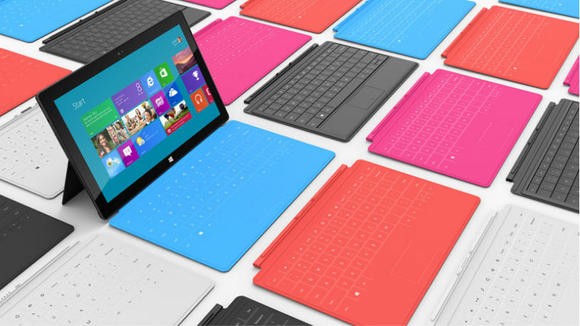
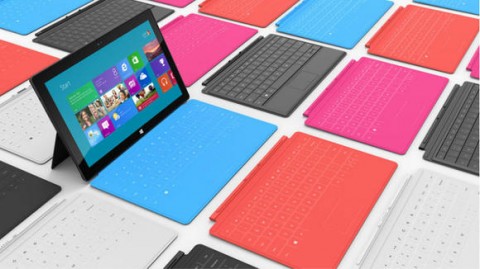
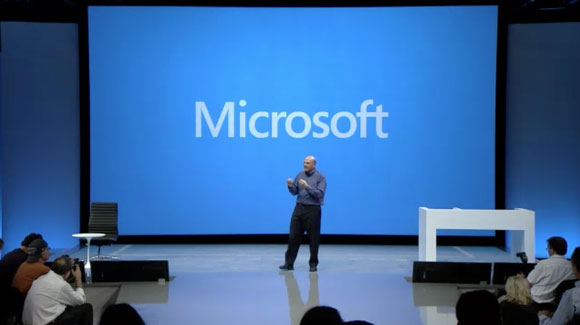
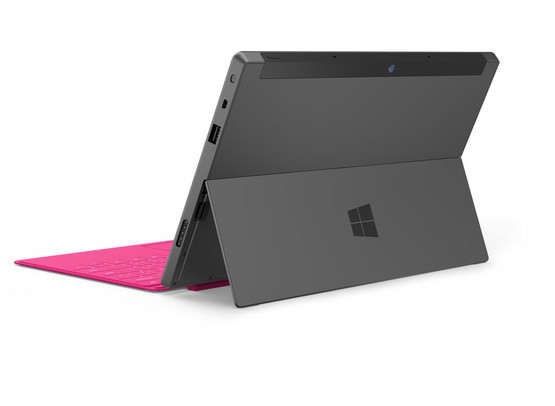
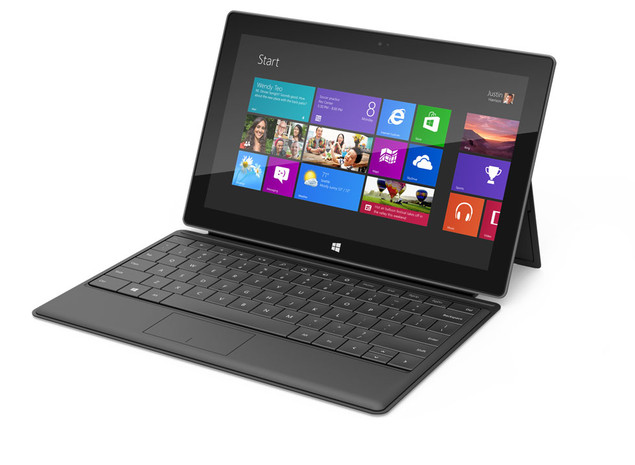
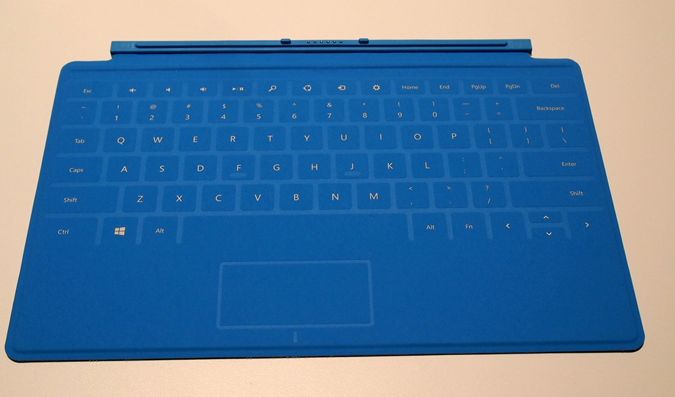



929548 103644Some times its a pain within the ass to read what blog owners wrote but this internet site is truly user genial ! . 571346